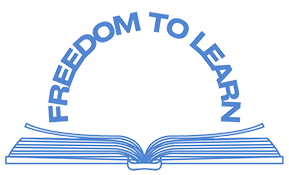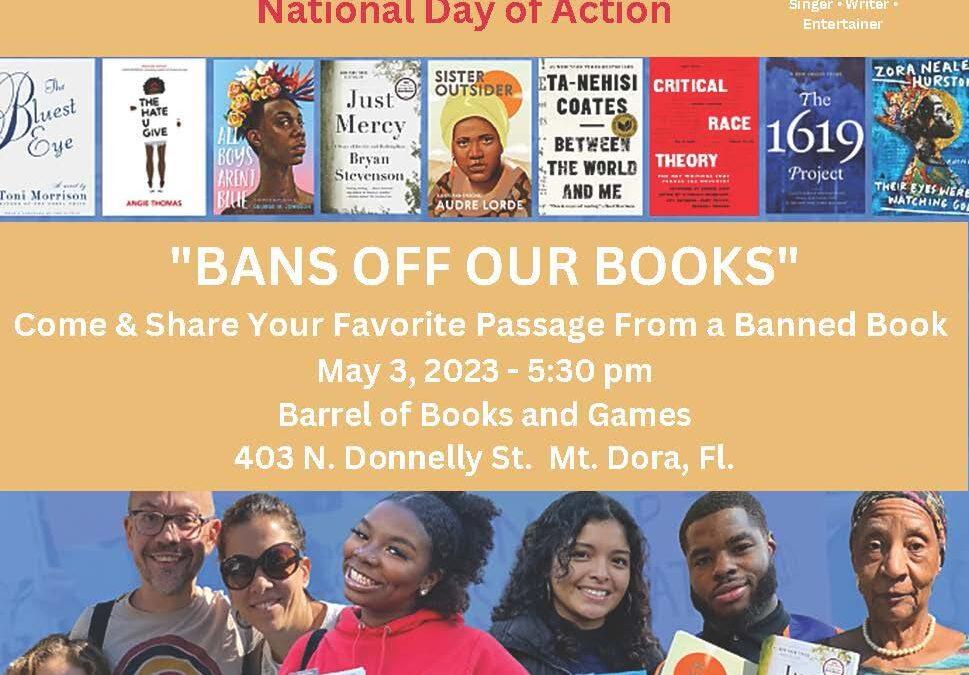FOR RELEASE:
Contact: Southern Poverty Law Center
www.splc.org
American education is in crisis.
Books are being banned, curricula censored.
State laws are stripping educational instruction of so-called “divisive concepts” involving race, history, sexual orientation and gender.
School boards are morphing into political battlegrounds as right-wing extremism takes a foothold in American education.
Teachers are scared. Students are anxious.
Today, the Southern Poverty Law Center and its Learning for Justice (LFJ) program join a broad, nationwide coalition of organizations taking coordinated action against school censorship, racial inequity and intolerance as part of National Day of Action: Freedom to Learn.
[List of recommended banned books]
The event, organized by the African American Policy Forum (AAPF), spotlights right-wing attacks on inclusive education as part of what AAPF calls a larger “lethal assault on democracy,” in concert with the suppression of voting rights, body autonomy, gender nonconformity and sexual orientation. Its purpose is to rally the American public, local communities and lawmakers to fight back against these incursions on individual rights.
“Partnering with communities to fight censorship matters more than ever as efforts intensify to erase stories of difference and diversity from our schools and public discourse,” said Margaret Huang, SPLC president and CEO.
“Difficult but essential conversations about racial justice and confronting our collective past must continue in classrooms. Nothing should stop that – not hate groups or anti-democracy extremists, not unrepresentative school boards and not authoritarian governors. The Southern Poverty Law Center is pushing for a full, truthful telling of our history and to reimagine how we can repair the harms of our past and present to build a multiracial, inclusive democracy for everyone.”
Learning for Justice – a leading resource in the national campaign to promote accurate and inclusive learning – in collaboration with the SPLC’s JEDI (justice, equity, diversity and inclusion) team, has partnered for the event with All About the Ballots (AATB), a Central Florida-based, Black woman-led organization focusing on rural and suburban communities.
AATB is hosting a “Bans Off Our Books Read-In” in the Mount Dora, Florida, bookstore Barrel of Books and Games. Staffers are handing out free banned books and the latest issue of the SPLC’s Learning for Justice magazine, both provided by the SPLC, and “I read banned books” T-shirts. The mayor of Mount Dora owns the bookstore and is hosting the event.
The 20 titles LFJ selected for the event are just a few of the nearly 1,500 titles that have been banned since the start of the 2022-23 school year, according to PEN America.
“LFJ’s work is all about inclusive education, so we wanted to be a part of AAPF’s brainchild,” said Jalaya Liles Dunn, LFJ director.
AAPF, a human rights, justice and equity think tank, was co-founded by Kimberlé Crenshaw. Crenshaw is a Columbia University Law School professor, theorist and writer on social justice, race and gender who coined the word “intersectionality” three decades ago to describe the intersection of social identities – gender, sexual orientation, race and other traits – and how they are affected by institutional white supremacy.
‘GROUND ZERO’
Earlier this week, faith leaders and civil rights advocates from across Florida, including the SPLC, gathered in Tallahassee for a two-day campaign to galvanize the public to challenge Florida’s repressive laws against free learning, voting and women’s rights and inclusion of Black, LGBTQ+ and immigrant communities.
Liles Dunn calls Florida “ground zero” in the fight against disinformation and school censorship. The state’s Parental Rights in Education law, known as “Don’t Say Gay,” was enacted in March 2022 and later expanded to apply to grades 4-12. The SPLC has challenged the law in federal court, joining critics who say it has chilled free speech in classrooms.
Last year, Florida Gov. Ron DeSantis also signed HB 7 – a measure that bans educators from teaching certain topics related to race – into law. Other Southern states have followed with their own versions. In Georgia, the Legislature passed HB 1084 and two additional repressive classroom laws. Alabama’s own version of HB 7 will come up for a vote for a second time during this legislative session. And in Louisiana, the Republican Party in an April resolution asked lawmakers to “pass laws removing diversity, equity and inclusion departments and agencies” in higher education.
LFJ’s decision to partner with a grassroots Florida organization for the Day of Action reflects the SPLC’s new strategic framework to engage with all communities affected by white supremacist laws and actions. In Florida, LFJ hosts monthly community learning sessions, sometimes with the SPLC’s Children’s Rights legal practice group.
“LFJ is centered on Black and Brown communities, but we are looking across the board at how injustice plays out across multiple populations – the LGBTQ+ community, the Jewish community, the AAPI [Asian American and Pacific Islander] community, anti-poverty organizations – and how they intersect with other communities,” Liles Dunn said. “We have to tell the whole story of what democracy looks like and what we have to do today.”
For AATB co-founder Cassandra Brown, who is also the Lake County, Florida, chair of the Black Women’s Roundtable, democracy in education means that “all children should be able to see themselves on the pages of books, in art, in leadership positions, thriving, accepted, loved and successful.”
During Black History Month last February, AATB held an “Embrace Not Erase” protest before the Lake County school board and listed a year’s worth of Florida’s repressive education legislation on a flyer.
With this Day of Action, Brown said, “we are hoping to raise awareness so that parents are knowledgeable about censorship in education. We are afraid that we are not reaching parents in marginalized communities. I need to make sure they know that this is happening and connect the dots to voting. That’s where your power is and how we can make change.”
###

